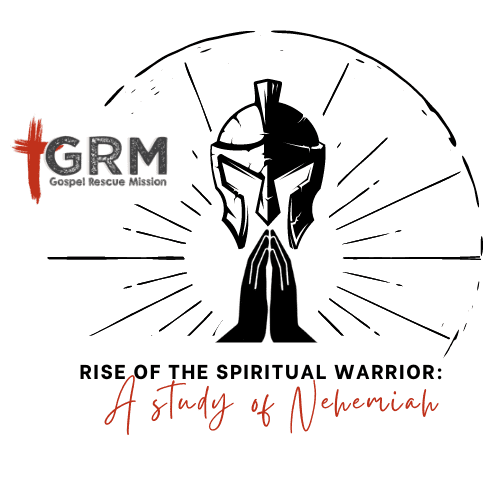Know where you are leading
1 Corinthians 7:17a, Only let each person lead the life that the Lord has assigned to him, and to which God has called him
After resigning my commission from the Army I felt that I was called to be a youth pastor in Washington. I applied to many locations and was excited to be offered the opportunity to meet with a pastor and his staff at a church near Seattle. I loaded up my family and attended their Sunday service and all seemed good. After service we went to lunch with the Pastor and his team followed by an interview of key church leaders. But it was during the lunch that I saw the pastor being rude to the server. My heart hurt not only for the young lady but also because I felt deeply that it was hurting Jesus. At the time I was desperate for work and was certain that God had called me to ministry so I needed to press on in the process. There were several other indications during the interview that I had the impression that the pastor was arrogant and mean. Looking at my little family I wondered if I was in the right place. Eventually I was not selected to be the youth pastor and while there was a feeling of rejection, I was also slightly relieved. The location would not have worked for me. A few years later during another season of transition in my life the associate pastor of that church who had become the senior pastor contacted me to offer me his old position. By that time I had matured and the memory of that location was like a fog over my heart. I chose a different direction, one that was clearly designed for me by God.
When we change and become more of the type of leader that lives a life that gives glory to God in words as well as in actions the way we experience the cultures around us also changes.
There once lived a wise elderly man in a village near the mountains. He had worked hard on his farm all his life and now he was content to hand over most of the work to his children and the younger ones in his village. His days were now pleasant and leisurely. Most of all, he liked to climb up the mountainside behind his village and sit on a bench there, smoking his pipe, dozing from time to time, but also contemplating about the village, the fields, the people, and the animals in the village. One sunny summer’s day, as he sat there smoking his pipe, he heard footsteps approaching along the mountain path which passed by his bench. It was a young man with a heavy backpack on his back. He walked up to the wise elderly man and asked him if he could rest for a while in this spot as it had the perfect shade and view over the village below. “No, of course not, make yourself comfortable,” replied the elderly man. It was a hot day and the young man was clearly tired because it took him a while to catch his breath. After a few minutes, he turned to the elderly man and asked him, pointing down to the village below, “Is that your village down there?” “Yes,” said the elderly man. “Why do you ask?” “I was wondering what the people are like there,” the young man said.
The wise elderly man thought for a while, pulled out his pipe, and then answered with another question. “What are the people like in the place you’ve just come from?” “Oh, that’s just it,” said the young man, pulling a face. “I don’t even like to think about them. They were all liars, cheats, thieves, and drunkards. That’s why I’ve left. I’m looking for a new place to settle down and your village looks nice.” The elderly man looked at him sadly and said, “I’m afraid you’ll find that the people in my village are liars, cheats, thieves, and drunkards, too. This is no place for you.” After a few moments of looking at the village the young man sighed, picked up his backpack, and went on his way to find a village that didn’t have that kind of people in it.
A few days later, when the elderly man was sitting on the same bench, dozing in the summer sun and smoking his pipe, another young man approached along the mountain path, carrying his heavy pack on his back. He walked up to the elderly man and asked him if he could sit down and rest for a while. “No, of course not, make yourself comfortable,” replied the elderly man. It was another hot day and the young man was clearly tired as he closed his eyes for a while before taking a good look around him. After a few minutes, he turned to the elderly man and asked him, pointing down to the village below, “Is that your village down there?” “Yes,” said the elderly man. “Why do you ask?” “What are the people like there?” the young man asked.
Once again, the wise elderly man thought for a while, pulled on his pipe, and then answered with the same question as he did with the previous young man. “What are the people like in the place you’ve just come from?” A smile spread over the young man’s face. “Oh, they are wonderful,” he replied. “You couldn’t wish to meet friendlier, happier more hospitable people. I’ve only been away a few weeks and I’m missing them already. But I wanted to see the world and to find out more about life. But I’m looking for a place to stay for a while and your village looks so nice.” The wise elderly man returned his smile and said, “Of course, you’ll be welcome to stay. We could use some help with the harvest. You’ll find the people in my village just as friendly, happy, and hospitable as those you have left behind.” And the two of them made their way together down the mountainside to the wide elderly man’s village.
We must get to know ourselves so that we can see clearly the culture that we are working and living in. Great trouble happens when we try to lead in the style of where we were and simply transfer it to where we are. The dynamics of the church world, the attitudes of the community and the reputation of the organization will all be different. Know where you are and adjust where things are negotiable and hold fast to the foundations of your character.
In a quote attributed to Thomas Jefferson, “In matters of style, swim with the current; in matters of principle, stand like a rock.”


